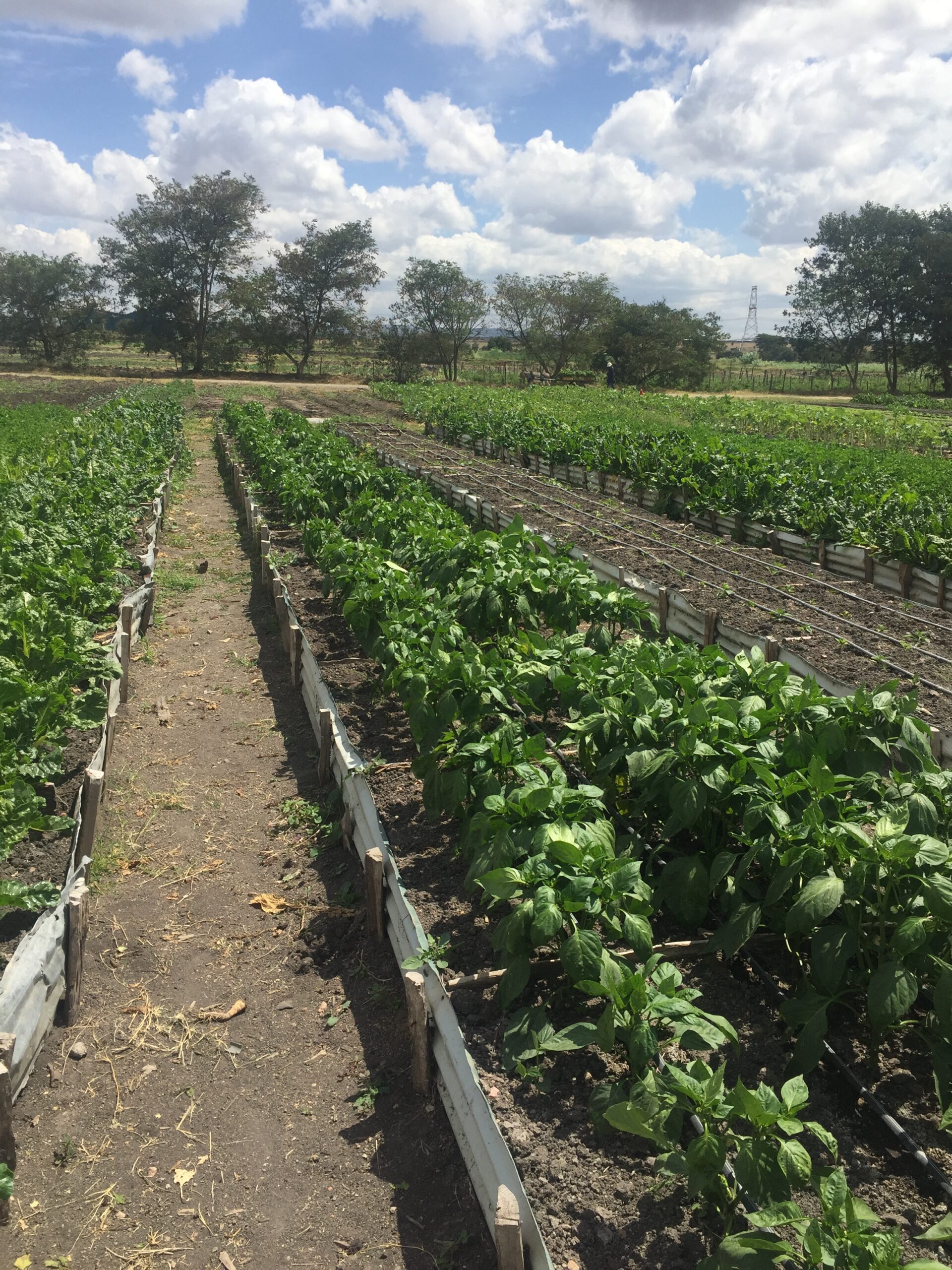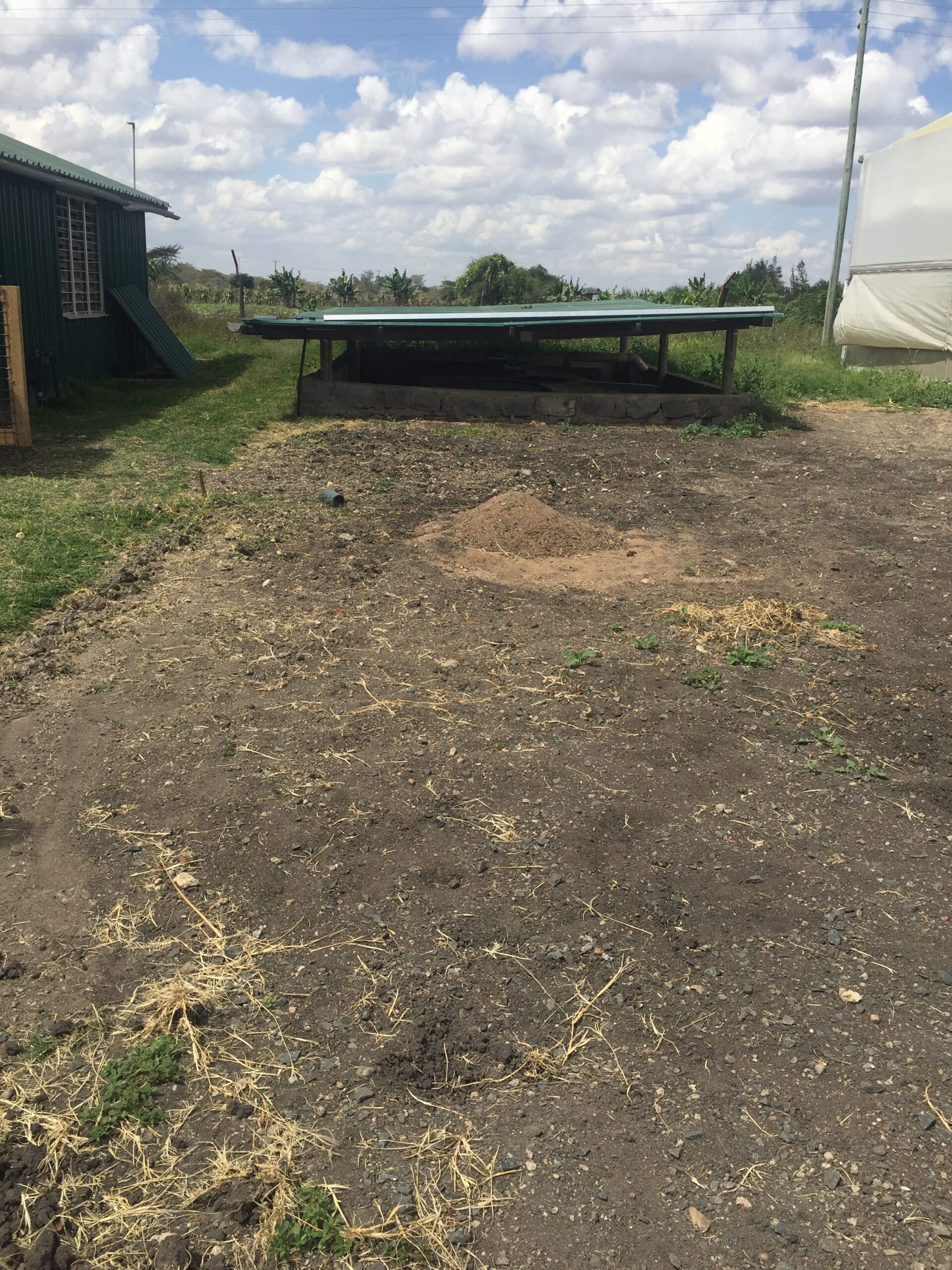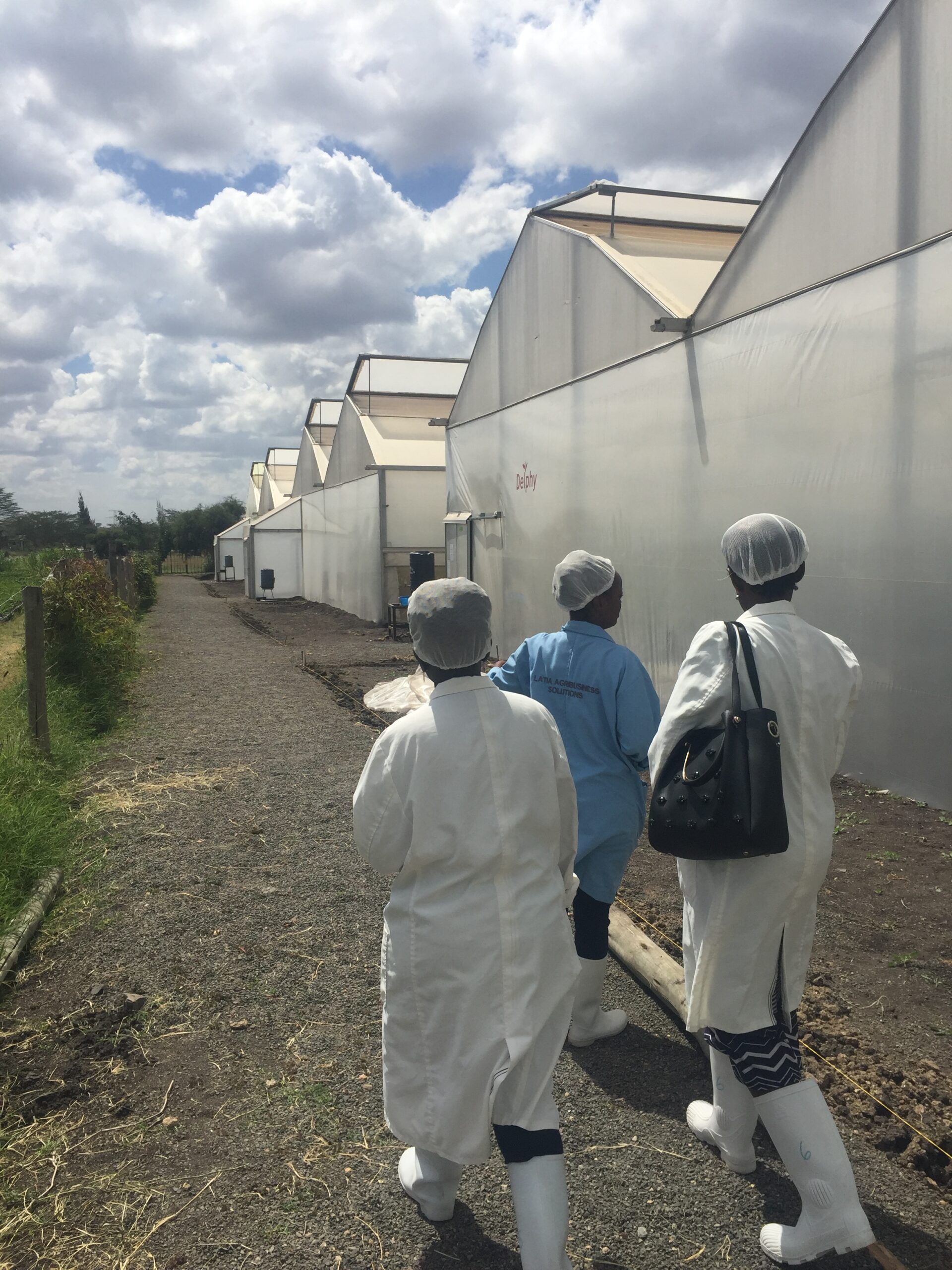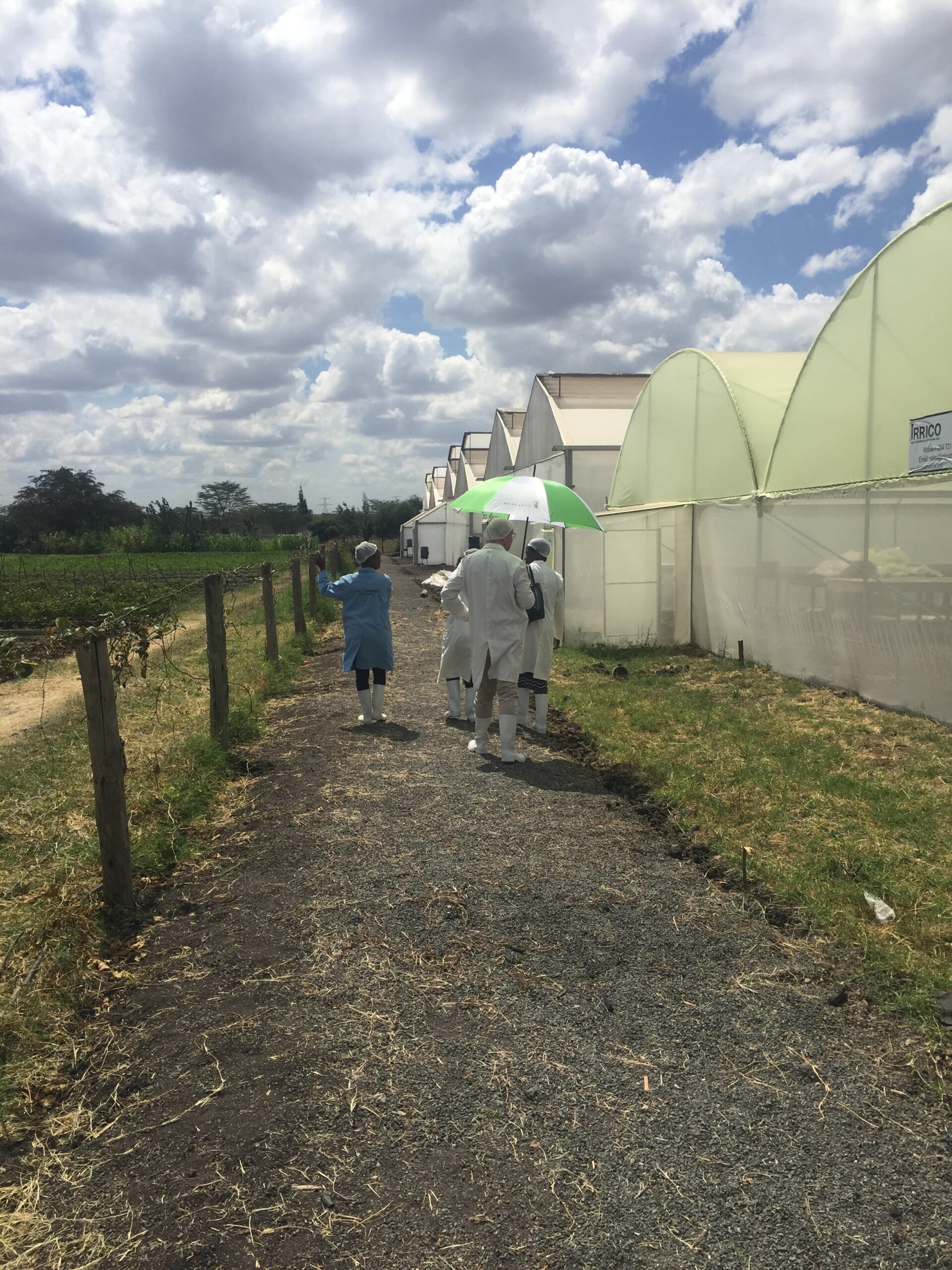Bukura Agricultural College, Egerton University, Latia Resource Center
Bukura Agricultural College (BAC), is a leading TVET in the agricultural education sector with 15 accredited training programmes, including horticulture and dairy programmes. There are modest resources for agricultural training (people, land, agricultural structures, etc.). BAC has some modern educational facilities such as a modern dairy processing plant and land and greenhouse construction for horticultural production.
Egerton University (EGU) is a leading agricultural university; EGU has been offering BSc programmes in horticulture for 70 years. Since its establishment as an agricultural university, the institution has reached greater heights and is exploring other areas due to increased market demand and available capacity. The Faculty of Agriculture remains the oldest faculty having produced all other faculties. The institute also established the Egerton Institute of Technical and Vocational Training, which offers ATVET accredited certificates and diploma programmes. This project will serve as a first step towards strengthening the Egerton Institute of Technology and Vocational Training at EGU. Graduates of BAC and LRC will also benefit from higher education programmes at EGU through credit transfer.
Latia Resource Centre (LCR): a leading private ATVET, with strong private sector involvement, on-the-job training facilities; excellent opportunities and structure to put agricultural training and ATVET education into practice. LRC Foundation began as Faraja Latia Resource Centre in 2008 and aimed to provide training and business support services to farmers, pastoralists and agribusinesses in Africa. Over the years, LRC has grown and distinguished itself by setting social impact as its main end goal and using innovative, flexible business thinking and processes to meet the needs of its main beneficiaries, farmers, pastoralists and agribusinesses. LRC aims to increase agricultural productivity in an economically and environmentally sustainable manner. In 2016, it registered Latia Agripreneurship Institute to provide youth training, appropriate technology and mentorship to farmers, herders and agribusinesses to yield healthy crops and livestock and sustainable agricultural practices. In 2017, Faraja Latia Resource Centre formed a subsidiary called Latia Agribusiness Solutions to empower small and medium agribusiness entrepreneurs through hands-on training in model businesses and providing services that boost employment and economic growth. LRC is not-for-profit and focuses on developing and supporting initiatives aimed at improving the livelihoods of producers and consumers at the bottom of the pyramid in Africa.
Kenya and agriculture – background to the project
The long-term goal of the Kenyan government is food and nutrition security. Despite the efforts of the Kenyan government, major donors and private sector developments, Kenya is still not food and nutrition secure. About three million Kenyans depend on food aid and this number doubles during calamities. Climate change has led to excessive rainfall and flooding on the one hand and extreme drought on the other. Of basic food, 20-30% is imported and domestic production of horticultural products is low during the dry season. To meet the growing demand for food, there is a need to attract youth to agriculture and increase agricultural productivity and agro-industry in economically and environmentally sustainable ways.
The main factors causing food insecurity are: Inefficient production, post-harvest losses, lack of food security and low youth participation in agriculture.
The importance of horticulture to improve land productivity, create employment, improve the economic conditions of women and men farmers and entrepreneurs, increase exports and, above all, provide food security to the population cannot be overemphasised.
Kenya’s TVET (qualification standards) system requires competency-based education and training; this includes horticulture training. However, perceived challenges in this system are:
- The majority of teachers struggle to translate the newly developed (CBET) curricula into actual practical lessons and lack skills to deliver practical training. This is also true for horticultural training. Teachers are not prepared for teaching in the field during their studies. Therefore, some teachers prefer to try to find other jobs outside teaching.
- The partnership between ATVET institutions and the private sector (horticulture industry) to increase the relevance of training is very weak.
- TVET curricula and training programmes lack practical implementation of training in the field; this is not done in an integrated manner.
- Lack of integration of learning and entrepreneurship. Such as incubation projects where students have to apply skills acquired through individual projects under supervision (managing their own plot for which they have to develop a business plan, conduct market research and grow crops).
- Career guidance is lacking in horticulture curricula and training programmes, connecting students with companies (employment), helping them to negotiate and students who want to start for themselves.
Little focus within ATVETs on promoting gender equality and marginalised groups.
Training needs and project objective
The project focuses on the horticulture sector in Kenya. It is based on the fundamental idea that improving the quality and employability of A-TVET graduates should be based on labour market needs.
Bukura Agricultural College (BAC), Egerton University (EGU) and Latia have been enabled to implement gender-sensitive and market-oriented (blended learning) programmes and inclusive value chain management, food safety, production education, technology transfer and industry education (including internships).
The project’s objective and long-term impact were as follows: contribute to ending hunger (SDG 2).
The long-term impact was defined as follows:
- Promote agricultural growth;
- Create ecologically sustainable food systems;
- Increasing water efficiency in agriculture.
This has been achieved through the following outcome: TVET/HE organisations (in the selected partner countries and in NL) perform their core functions better, firmly embedded in their environment (in line with national / regional legal framework, specific labour market needs & focused on inclusiveness).
Based on a prioritisation of capacity gaps in the CPI, the following intervention area applies to this project: Improving VET at the Polytechnics and Technical and Vocational Schools (TVCs) level in horticulture value chains through strong collaboration with the private sector.
Services rendered by Q-Point
Q-Point focused on capacity building of the staff of educational institutions through: Project coordination, value addition, value chain management, linkage with the private sector and gender mainstreaming.
Project output: Strengthened teaching and management capacity of Faculty of Agricultural Sciences staff through training, short courses and coaching.
- Labour market needs assessment;
- Development of curricula and short courses;
- Value chain development;
- Business expansion and technology transfer;
- Institutional linkage with the private horticulture sector;
- Curricula development;
- Private sector, entrepreneurship development and business incubation;
- Gender and social inclusion;
- Leadership and management of education and training;
Below a small impression of the project:





CLIENT
Funded by the Dutch Ministry of Foreign Affairs and managed by Nuffic, as part of the Orange Knowledge Programme, project number OKP-KEN-10017.
REQUESTING PARTY AND PARTNERS
- Bukura Agricultural College (BAC)
- Egerton University (Egerton Institute of Technical and Vocational Training)
- Latia Resource Centre
CONSORTIUM PARTNERS Q-POINT
DURATION
June 2019 – December 2022




